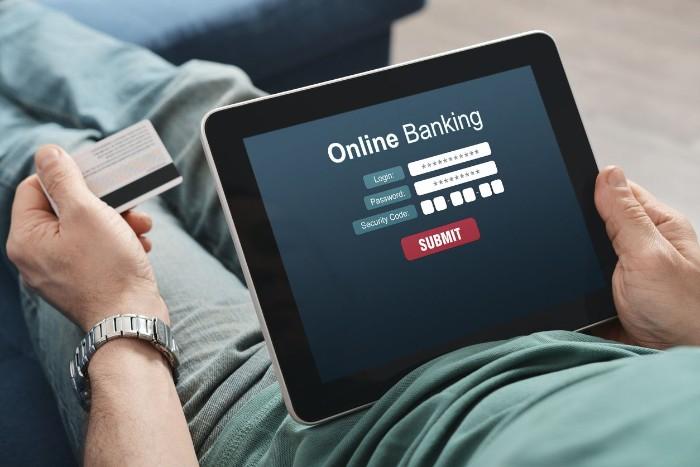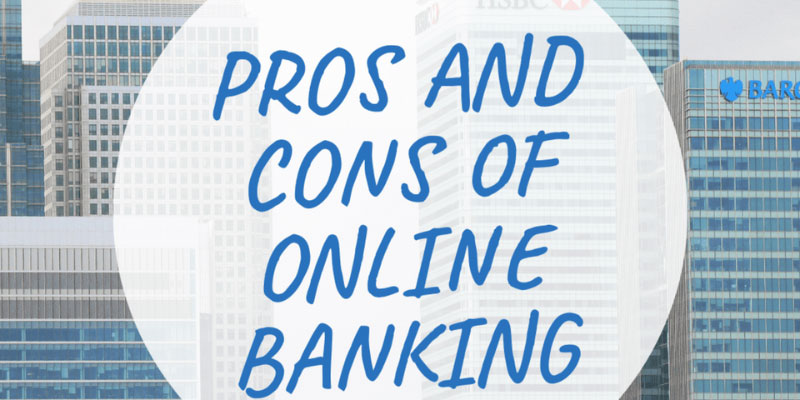Deciding to switch from a traditional brick-and-mortar bank to an online one can take time and effort. After all, banking is an important part of everyday life for most people, and making such a major change has potential consequences. To help you make this important choice, this blog post will explore the pros and cons of using any internet bank in detail.
Here, we’ll look at what sets them apart from regular banks, their top features and benefits, security concerns with using any digital banking service, and other considerations, including fees and customer service. So if you’re considering joining the millions who have opted for digital banking solutions like internet banks - read on!
Introducing Internet Banking - What Is It and How Does It Work

Internet banking, or online banking, is a financial service that allows customers to access their bank accounts and manage their finances online.
With an internet banking platform, users can view account balances, transfer funds between accounts, pay bills, and more without ever having to step foot in a physical bank location. Internet banks are also known for their reduced fees, low-interest rates, and higher savings account yields.
Pros of Using Internet Banks

Internet banking can offer many advantages to those looking for a more streamlined and convenient way to manage their finances. Here are just some of the pros of Internet banking:
Lower fees
Internet banks often have much lower fees than traditional banks. Internet banking can be a great choice for those looking to save on fees and minimize expenses.
Greater access
With Internet banking, you can access your accounts 24/7 from anywhere in the world with an Internet connection. This makes it easier to keep track of your finances, pay bills online, and transfer money between accounts or different banks.
Better customer service
Internet banks often provide better customer service than traditional banks. They typically offer more tools and resources, such as live chat support and detailed FAQs, that help customers troubleshoot any issues quickly and easily.
Higher interest rates
Internet banks usually offer higher interest rates on savings accounts than traditional banks. Internet banking users can earn more on their money and grow their savings faster over time.
More convenience
Internet banking offers many conveniences unavailable through traditional banks, including setting up automated payments and transfers, checking your account balance in real-time, and receiving notifications when transactions occur. This makes it much easier to manage your finances quickly and efficiently.
Easier budgeting
Internet banking also makes it easy to create a budget and track spending habits with tools such as online calculators, graphs, and charts. You can easily monitor where your money is being spent and identify areas where you can save money each month.
More Options for Investment Opportunities
Internet banking opens the door to a world of investment opportunities. Internet banks typically offer access to various types of investments, such as stocks and bonds, making it easier to diversify your portfolio and earn more returns on your money.
Cons of Using Internet Banks
Internet banks have several downsides you should be aware of before switching. Here are some of the biggest cons of using internet banks:
Limited or no branch access
Internet banks don’t have physical branches, so if you need to visit one in person, you’re out of luck. Internet banks also generally have limited ATM access, which can be problematic if you need cash.
Limited customer service options
Internet banks typically don’t offer the same customer service level as traditional brick-and-mortar banks. If you have an issue or question, you may need to rely solely on online help centers or email support.
Lack of face-to-face interaction
Internet banking means you don’t interact with tellers and other staff in person. This can make it more difficult to establish relationships with bank personnel and receive advice on your financial situation.
Security concerns
Internet banks tend to have less fraud protection than their traditional counterparts because they are more susceptible to cyberattacks. Internet banks also take longer to process transactions, leaving you vulnerable if fraudulent activity occurs in the interim.
Fees
Internet banks may charge fees for certain free services with traditional brick-and-mortar banks, such as overdraft protection and money transfers.
While internet banking has advantages, some drawbacks should be considered before switching.
It’s important to weigh these pros and cons carefully to decide whether or not an online bank is right for you.
Final Thoughts - Is an Internet Bank Right For You
Deciding whether an Internet bank is right for you depends on your circumstances. Internet banks offer many advantages, such as convenience and low fees, but they can also present some challenges that may only be ideal for some.
When considering Internet banking services, take the time to weigh all the pros and cons and ensure that it's a good fit for you before making any final decisions. Remember to compare different Internet banks to get the best deal for your needs.
Security should be a major point of consideration when choosing an Internet bank. Although Internet banking is generally secure, you'll still want to ensure that the service offering has robust security features to keep your personal and financial information safe.
Finally, Internet banks offer many services, many of which have low or no fees. Be sure to research the different Internet banks in your area to compare their fee structures and check for any additional costs that may apply. This will help ensure you get the best deal possible when switching to Internet banking.
Internet banking can be an extremely convenient option with several advantages, but you must consider all factors before deciding if Internet banking is right for you. Take your time researching available options, weigh all the pros and cons of Internet banking, and read all terms & conditions before taking the plunge!
FAQs
How do I compare different online banks?
When comparing different online banks, there are several factors to consider. First, look at each bank's services and determine which ones best meet your needs. Consider account features (interest rates, mobile banking options, and ATM access), fees, customer service, and security measures.
You should also research the bank's history and read customer reviews to better understand its service quality. Ensure you understand the terms and conditions of any account you open with an online bank before signing up.
What are the fees associated with online banking?
The fees associated with online banking vary depending on the bank and services you use. Some Internet banks offer free checking accounts but may require a minimum deposit or balance to avoid fees.
Other Internet banks charge regular bank fees such as overdrafts and ATM usage. Be sure to read the terms and conditions of any account before signing up.
What are the interest rates for online banks?
Interest rates for online banks vary depending on the type of account you open. Internet banks usually offer higher interest rates than traditional brick-and-mortar banks, but this is only sometimes true.
Before signing up for an Internet bank, research its current interest rate offers and compare them to other Internet banks.
Conclusion
Internet banking offers many advantages and some drawbacks compared to traditional banks. With the right bank and services, internet banking can offer a competitive interest rate, a convenient selection of online payment methods at no extra cost, and complete access to your finances from anywhere you have an internet connection.



